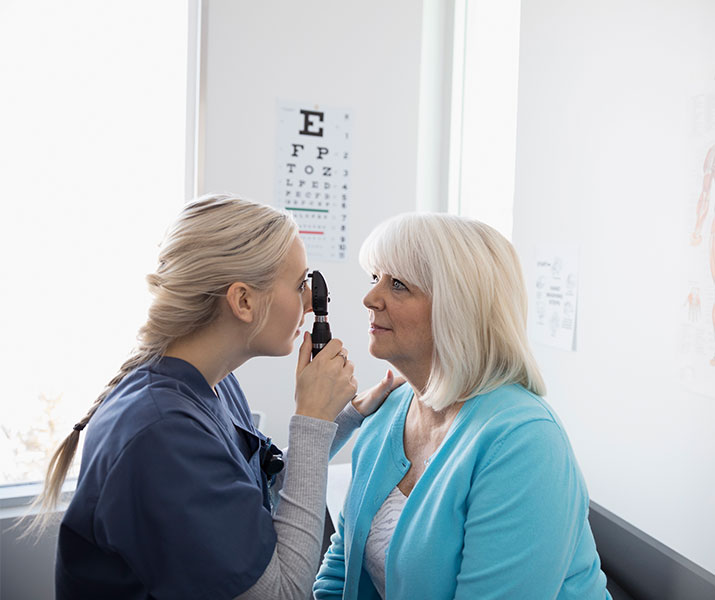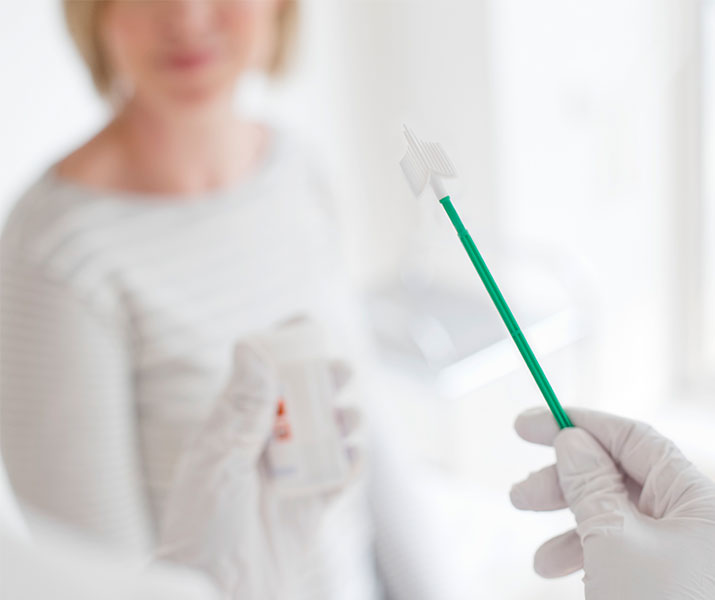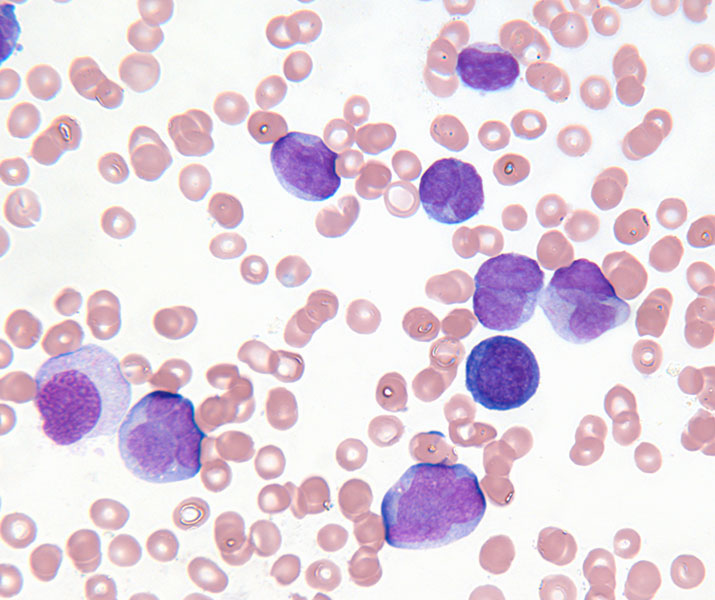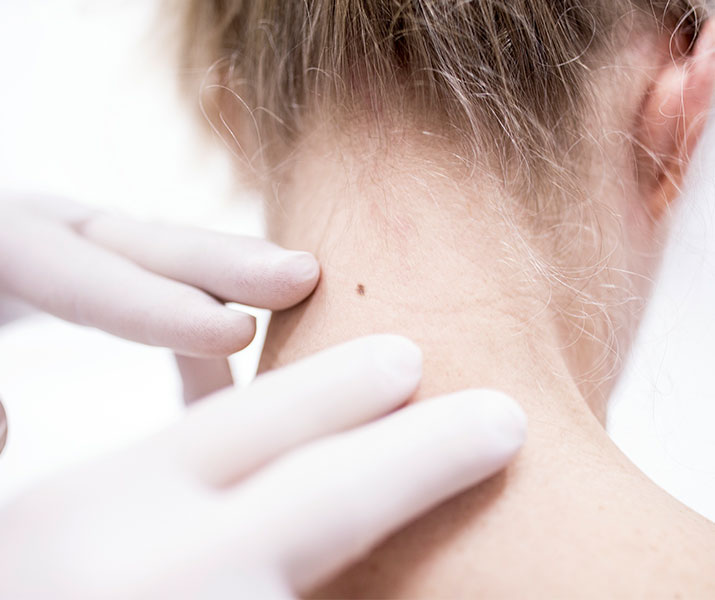Having regular health checks is like getting your car serviced.
The idea is to stay on top of any developing issues, rather than waiting for a breakdown.
Here’s a snapshot of some of the recommended health checks for women over 40 who have no symptoms, signs or known risk factors for disease.
Always ask your doctor if you’re unsure of what health checks you should be having.
Routine checks
Any routine health check begins with a discussion about your family medical history and lifestyle.
Dr Jill Thistlethwaite, GP and Medical Adviser with NPS MedicineWise, says to expect questions about smoking, alcohol consumption, physical activity and diet, in addition to having your weight checked.
“These are all important in assessing your risk levels for a number of conditions, including cardiovascular disease, cancer and diabetes,” says Dr Thistlethwaite.

BMI and Waist circumference are important health checks.
(Credit: Getty)BODY MASS INDEX (BMI) AND WAIST CIRCUMFERENCE
BMI and waist circumference are used to determine whether your weight falls within or outside a healthy range.
What’s involved? Height and weight are used to determine BMI. For most adult women, a normal BMI is 20-25 and waist circumference should be
What next? Your health practitioner may suggest increasing physical activity and making changes to diet.
Check-up frequency: 1 to 2 years

Getting your blood tested will determine iron levels.
(Credit: Getty)IRON STUDIES
Iron deficiency or low-iron stores in the liver are common among women who suffer from heavy periods, fatigue or tiredness.
It can also affect women with low dietary iron intake.
What’s involved? A blood test, also known as iron studies, looks at both haemoglobin (iron containing protein in red blood cells) and ferritin (iron stores).
Dr Elizabeth Farrell, Medical Director at Jean Hailes for Women’s Health stresses that “it’s important to have a blood test before taking iron supplements.”
What next? “When someone has low iron or low ferritin, they’re commonly recommended to take oral iron and to improve iron-containing foods in their diet,” says Dr Farrell.
“When ferritin is in the low or below-normal range it might be appropriate to have an iron infusion.”
Check-up frequency: As advised.

Glucose can be detected from blood tests.
(Credit: Getty)GLUCOSE (BLOOD SUGAR LEVELS) TEST
A fasting glucose test is the benchmark for diagnosing diabetes.
What’s involved? “Glucose is measured in the blood, so your doctor will take a blood sample,” says Dr Thistlethwaite. “Usually you will have to fast for eight to ten hours before taking the test.”
What next? High glucose levels may suggest an increased risk of diabetes. Your doctor may ask to repeat the test as well as undertake further investigation.
Check-up frequency: 1 to 3 years.

Eye examinations are important to test for Glaucoma.
(Credit: Getty)EYE EXAMINATION
Glaucoma is a major cause of blindness. Eye examinations should begin from age 40, or earlier if you have a higher risk or family history.
What’s involved? An eye examination by an ophthalmologist or optometrist to detect abnormalities.
What next? Early detection is vital as the condition can then be controlled, with little damage to the eye. There is however no cure once blindness occurs.
Check-up frequency: Every 2 years.
Heart Health
Heart health checks are crucial for identifying the risk of cardiovascular diseases, which includes conditions such as coronary heart disease, heart failure and stroke.

General well-being and heart health go hand in hand.
(Credit: Getty)BLOOD PRESSURE
“Raised blood pressure is one of the most important risk factors for cardiovascular disease,” says Dr Thistlethwaite.
Because there are no symptoms of raised blood pressure, regular testing is essential.
What’s involved? A cuff will be inflated around your upper arm to get a reading, with the optimal being 120/80 mmHg.
What next? Blood pressure that’s higher than the normal range can put you at increased risk of cardiovascular disease.
“If your blood pressure is very high, your GP may decide you need medication to reduce your blood pressure, in combination with lifestyle changes.”
Check-up frequency: Every 1 to 2 years.

High lipid levels in blood can be an indicator of poor heart health.
(Credit: Getty)LIPIDS (CHOLESTEROL) CHECK
Abnormal lipid levels are one of the indicative risk signs for cardiovascular diseases.
Dr Thistlethwaite says those at moderate or high risk will require more frequent testing.
What’s involved? Lipids are measured in the blood, so your doctor will take a blood sample for analysis.
What next? If lipid (cholesterol) levels are high, your doctor will want to closely examine lifestyle risk factors.
“Your GP may also recommend lipid-lowering medication,” says Dr Thistlethwaite.
Check-up frequency: 1 to 5 years
Cancer Checks
Cancer screening tests look for early signs of cancer, even before it’s developed or any symptoms have emerged.
Dr Thistlethwaite says it’s important to remember that even these screenings are not diagnostic.
“There can be a number of reasons for a positive result.”

Early detection is vital in treating cancers.
(Credit: Getty)MAMMOGRAM
Mammograms are vital in the early detection of breast cancer. They are recommended from age 50 to 74, but at risk women may need to commence them earlier and more frequently.
On top of mammograms, self-checks are essential.
“Contact your GP if you feel any lumps or discharge or change in breast skin,” says Dr Elizabeth Farrell, Medical Director at Jean Hailes for Women’s Health.
What’s involved? Each breast is pressed between two x-ray plates.
What next? A positive screening result is not a cancer diagnosis, but will require further investigation.
Check-up frequency: Every 2 years.

Get a pap smear test every 5 years after the age of 25.
(Credit: Getty)CERVICAL SCREENING TEST (PAP SMEAR)
The new cervical screening test commenced in December 2017, meaning women aged 25-74 only need to be tested every five years (if the result is negative).
“The test is taken exactly the same way as the old pap smear,” says Dr Farrell.
“However it now checks for the presence of the human papillomavirus virus, which is the major cause of cervical cancer.”
What’s involved? A vaginal exam where a small brush is inserted to take a sample from the cervical opening.
What next? If the test comes back positive, Dr Farrell says the next steps may include a repeat test or a referral to a gynaecologist for further examination.
Check-up frequency: Every 5 years.

Cancerous cells are hard to detect.
(Credit: Getty)BOWEL CANCER SCREENING
A Faecal Occult Blood Test (FOBT) is used for early detection of bowel (colon) cancer.
“People who are at high risk of developing bowel cancer due to family history should also have a colonoscopy every five years,” adds Dr Jill Thistlethwaite.
What’s involved? Using a supplied FOBT kit, you will need to provide two bowel motion samples. These are then tested for blood traces.
What next? “A positive screening test is not a diagnosis of cancer, but will require further testing,” says Dr Thistlethwaite.
Check-up frequency: Every 2 years from 50.

Knowing your family history can determine likelihood of skin cancers.
(Credit: Getty)SKIN CHECK
“Your doctor may recommend regular skin checks if you have a family history of skin cancer or other risk factors,” says Dr Thistlethwaite.
Self-checks are also essential – notify your medical practitioner of any changes.
What’s involved? A doctor or dermatologist will undertake afull body examination of all moles or freckles on your skin, looking for abnormal skin lesions or moles with unusual shapes or colours.
What next? Your doctor will advise if any further testing or treatment is needed.
Check-up frequency: Every 1 year.
Check-up checklist
Want to be more proactive about your health? Head into your next check-up with these questions.
Is my weight within a healthy range?
Is my blood pressure within a healthy range?
Are the medications I’m currently taking still relevant?
Am I due for any vaccinations?
Considering my family history, am I at risk for certain diseases?
Considering my age or lifestyle, am I at risk for certain diseases?
What upcoming screenings, appointments or health checks should I book in next?
What should I be doing before my next check-up?
What are some reliable sources if I want to learn more about my health?


